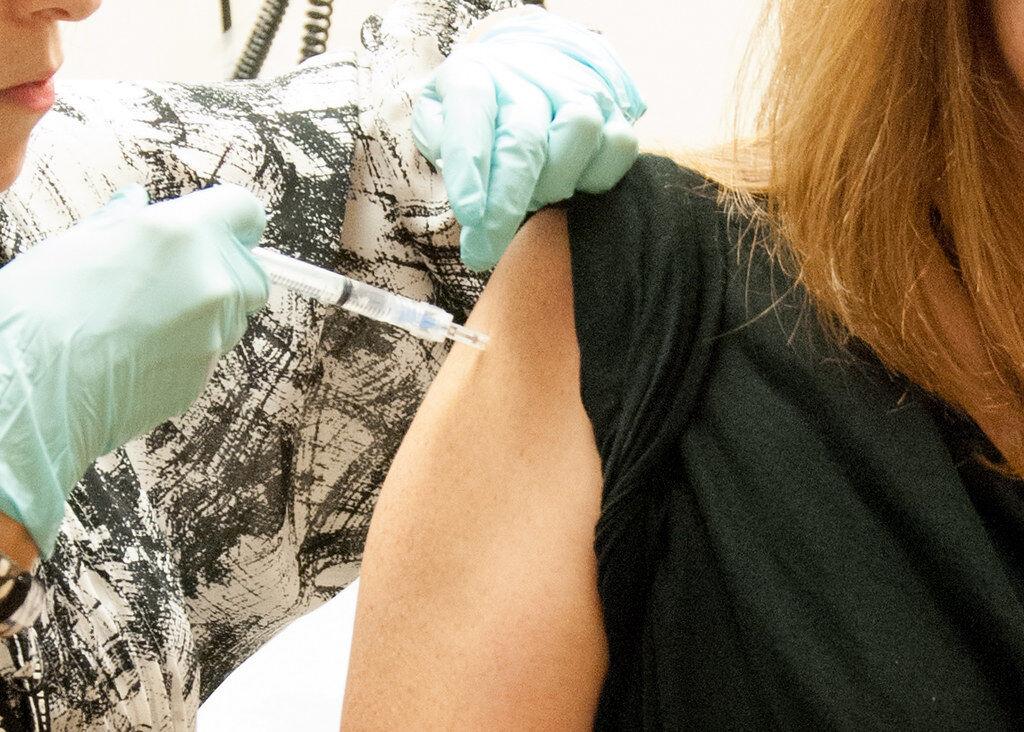Since the COVID-19 vaccine began distribution, doubt has been circulating regarding the safety of this momentous breakthrough. From all social media platforms, there are concerns about how quickly scientists produced the vaccine, questioning its effects on infertility, its changes to DNA and its overall safety.
I’m no virologist, but I did get my first dose of Moderna on Monday. The shot itself I didn’t even notice — I sat in a chair waiting to get the shot while the nurses looked at me in confusion. That’s how easy it was. I didn’t even feel it. My arm afterward did feel like a filet meeting a tenderizer, but it was nothing a couple of Ibuprofen couldn’t fix. Overall, the Tetanus shot I received when I was 11 was far more painful.
All of this to say, there isn’t any reason to fear the COVID-19 vaccine. So let’s talk about some facts versus myths.
Safety
Arguably, the biggest cause of concern is the vaccine’s reliability. This stems from the fact that it was created in a time span of less than a year. The previously reigning champ of the fastest immunization production was for mumps in the 1960s, which took about four years. Most vaccinations are produced over the course of 10 to 15 years, but that’s what is so revolutionary behind the science of the COVID-19 doses.
How did scientists do it? Fortunately, the coronavirus family isn’t new, and COVID-19 in particular is very similar to the SARS and MERS spike-like protein shape. That means researchers didn’t have to start from scratch, which accelerated the process. It’s also important to keep in mind that the pandemic warranted pretty much unlimited funding, which was backed by governments across the globe, the U.S. included.
With respect to safety, The Food and Drug Administration requires all emergency use vaccines to have studies evaluating at least half of its participants for at least two months after completing the trial. In addition, emergency use vaccines are evaluated independently by the FDA to ensure safety and effectiveness.
Changing our DNA
More than 70,000 people coming from diverse backgrounds participated in the clinical trials. These individuals were studied and observed relentlessly on its effectiveness and safety. As of today, there are more than 3,750 studies occurring in the U.S. over the effects of inoculation on any circumstance you can think of. The studies have ranged from telerehabilitation for Alzheimer’s patients to the effects of giving colostrum (rich antibodies in breast milk) to COVID-19 patients. There is no data to support the claim that the vaccine alters your DNA.
Messenger RNA, or mRNA, can be found in every cell of your body; overall, it’s essentially an instruction manual to our cells on how to build protective proteins against viruses. The mRNA dies off quickly, and then we’re left with an army of viral particles out of these proteins. In fact, mRNA never enters the nucleus of a cell, where DNA resides, making it impossible to alter DNA sequences.
Infertility
Rumor has it the antibodies in the COVID-19 vaccine can bind to placental proteins and prevent pregnancy. But coronaviruses aren’t anything new, and similar vaccinations for other viruses in the family have not been shown to cause infertility. Regardless of vaccination status, our bodies create the same antibodies that the antidote would. If COVID-19 affects fertility, then there would have been an increase in miscarriages since the rollout. (Spoiler alert: There hasn’t been.)
The mRNA in the shots will be broken down by our body’s immune system within hours or days, leaving a very unlikely chance for the proteins to reach the placenta. There weren’t any women originally selected for clinical trials who were pregnant, but some became pregnant during the trials. The Centers for Disease Control and Prevention is also tracking symptoms of pregnant women who have received doses of the vaccine and none have reported anything abnormal. Ultimately, you should make the decision that you feel is best for your body and your child. But just know that many vaccinations are recommended for pregnant women, and the one for COVID-19 isn’t any different.
There is no reason to fear the vaccine for anything more than a sore arm. Sure, the concept of scientists creating a revolution in pharmaceuticals within a year is boggling and very difficult to comprehend. However, this year has created more pain and loss than the world ever could have imagined, and scientists and governments were willing to work at whatever cost to diminish our suffering. Clinical trials and studies are publicly available, and I highly encourage a read if you’re skeptical.
The science is there, and the facts remain.
Kaelin Connor is a psychology junior and opinion writer for The Battalion.





















